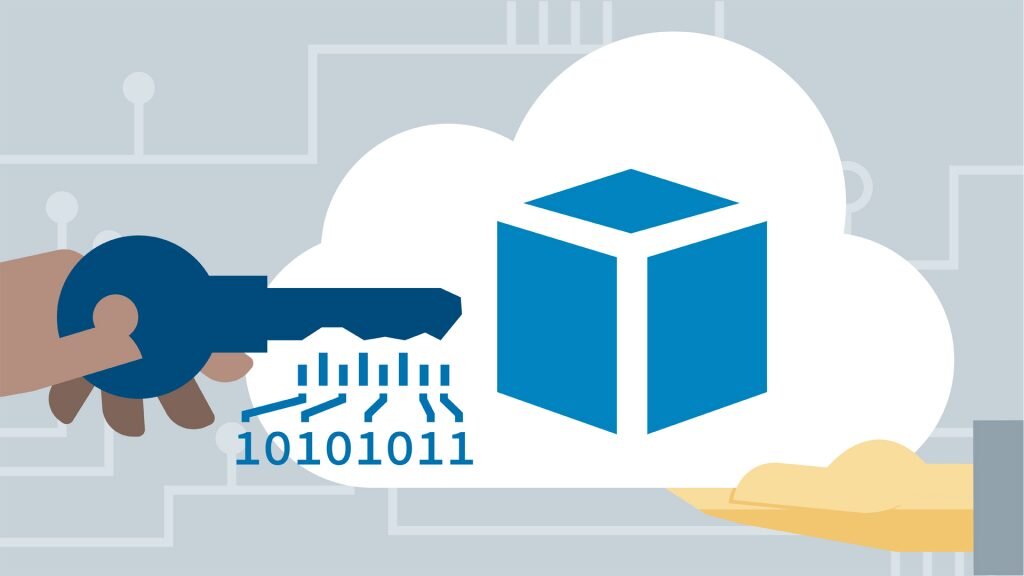DevOps diligence: how businesses can earn their stripes and achieve AWS competency accreditation


For businesses in the early stage of their ventures, proving that they have the expertise and technical know-how when it comes to cloud technology can be difficult. An acceleration toward digitisation due to COVID-19 and an increasingly crowded cloud market, dominated by the big players, means that simply shouting about your skills in cloud engineering and DevOps isn’t enough to get noticed.
But what if you can work alongside these giants? Joining forces with expert brands and entering into endorsement partnerships can propel your business by loading it with seasoned expertise. Accreditation, if you can achieve it, can give you a stamp of approval and reassurance to prospects that you have the relevant knowledge to support their digital transformation efforts. Collaborating with industry leaders on skills accreditation programmes is a great way to demonstrate your capabilities and gives clear goalposts to work to when it comes to building and learning.
So, how do businesses achieve this status and what are the long-term benefits of the process?
What does it take to become a trusted AWS partner?
At AND Digital, we have achieved our accreditation as an AWS DevOps Competency Partner. A lot of hard work and investment has gone into building the technical skills required to reach such a high standard – logging and evidencing every action your team takes is no mean feat. From beginning to end, the course took around 6 months. The process begins with researching and selecting which specific competency your team is interested in achieving. It’s important to understand which competency your business is most suited to – so doing your homework is key. From there, there’s a lot of work to evidence, certificates to achieve and reviews to undergo. Becoming an accredited AWS partner brings a multitude of benefits to your brand, so is well worth the investment.
Top tips for the accreditation process:
Create detailed accounts of your work: To become a certified DevOps partner, businesses need to evidence four case study examples, two public and two private. As such, we found it useful to bring in a tech writer who consolidated all our notes and observations throughout. We began with a technical exploration from the team to understand the best case studies to put forward, our work had to be clearly evidenced with strong examples and the documents to back it up which took a considerable amount of time to pull together. Maintaining clear and detailed accounts of previous work can prevent any delays. This information is firstly analysed by AWS to check that it met the specific requirements before being passed on to be examined by a team of external auditors, so every detail counts when it comes to showcasing your work.
Prepare the marketing team: As part of the process, businesses are required to have certain marketing collateral in place across their website to aid with lead generation For the DevOps competency certification, we needed to evidence three technical blogs – businesses applying for the certification need to ensure that the content best reflects their expertise in the given competency. Once the accreditation is finalised, the partnership should be displayed on the site. Even if a business is tech agnostic, demonstrating your skills in a particular type of cloud engineering is highly valuable to your brand and AWS is a respected platform to use.
Advance technical training in the workplace: Having members of the team qualified in cloud engineering is another requirement of the accreditation. For DevOps, we needed eight people in the team to have achieved their associate certifications and four pros. To fulfil this requirement and ensure that we’re on top of our game when it comes to cloud training, we’ve invested in third party tools, provided access to LinkedIn Learning programmes and we give our people additional time off from client facing work to prepare for their exams. Building and learning in tandem is the fabric of our culture, and a similar approach would benefit any company looking to achieve cert status.
The benefits
Being able to showcase a close association with a major player such as AWS opens up a number of doors for smaller businesses. Operating within this kind of business ecosystem provides the opportunity to demonstrate a business’ DevOps and technical skills to an enormous global audience which can drive new business conversations and drive quality leads. Confirmation that your business is a trusted partner for a major cloud organisation will ensure that prospects have confidence in your capabilities and you’re taken seriously as a technical player in the market. Building confidence within your teams and supporting them in their learning is an investment that will pay off in dividends.
At AND, we can automate platforms in as little as one hour, whilst other organisations can take almost eight weeks to complete the process – it’s something we’re really proud of and working alongside AWS as an accredited DevOps partner gives us a springboard to talk about our work and engage with other players in the market. The accreditation is a fantastic talking point and definitely gets you noticed in the cloud community – plus, you will be taken more seriously as a partner.
Investment in cloud tech as a key for the future
As businesses everywhere begin to operate in an increasingly digitised environment, technical skills and cloud expertise are a necessary investment for any business. Working towards coveted industry accreditations whilst prioritising skills training in the long run is imperative. It’s a competitive, buoyant market for cloud engineers and DevOps at the moment; opportunities are at their fingertips and if they aren’t being fulfilled by their current work, they’re likely to look elsewhere. Investment in training and nurturing growth in this way breeds loyalty. For a company to thrive technically, it needs to host a wide range of diverse talent and be able to retain it. Learning opportunities should always be the key focus.
The shortage in this talent means it’s critical to advance the businesses cloud expertise by pursuing recognition from major global players, providing advanced training and certification opportunities for people will ensure long term talent retention whilst making the business a leader in cloud engineering which is pivotal for long term success.
Author:

 Tina Howell, Exec for Cloud Engineering at AND Digital
Tina Howell, Exec for Cloud Engineering at AND Digital

You must be logged in to post a comment.